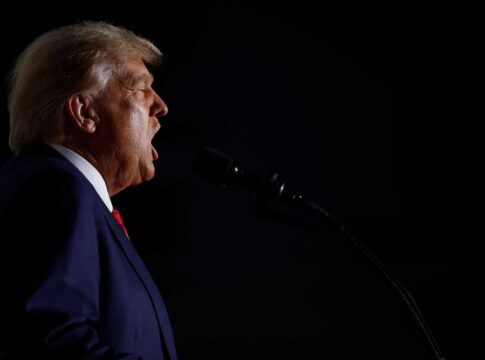President Donald Trump sees a favorable shift in legal proceedings as a judge ruled against the reinstatement plea of Shira Perlmutter. Judge Kelly’s decision dismissed Perlmutter’s claims of irreparable harm following her firing, raising concerns about potential destabilization in the tech sector. Does the firing of Perlmutter disrupt the separation of powers?
Legal Proceedings and Implications
Shira Perlmutter filed a lawsuit against the Trump administration, claiming unlawful dismissal while stating that only the Librarian of Congress can appoint or remove the Register of Copyrights. Obama’s appointed Librarian of Congress, Carla Hayden, had named Perlmutter in 2020, and her removal by Trump led to judicial scrutiny and criticism from various quarters.
Trump’s action followed Hayden’s term termination, with Todd Blanche appointed as her temporary replacement. This move triggered Perlmutter’s legal challenge, arguing that the presidential appointment of Blanche was illegal, hence unable to remove or appoint her. Meanwhile, the situation spurred concerns within the tech industry about the broader implications of advisory bodies like the Copyright Office being used for political leverage.
The following is statement from the Writers Guild of America East (WGAE) on the firing of Shira Perlmutter immediately following the release of the U.S. Copyright Office’s Report on Generative AI Training: pic.twitter.com/tKXFWdkZgU
— Writers Guild of America East (@WGAEast) May 16, 2025
Congressional Concerns and Industry Impact
Democratic figures, including Joe Morelle, contended that the firing of Perlmutter aligns with a broader strategy by the Trump administration to remove opponents from key positions, suggesting an unprecedented power grab. Morelle links this decision to Perlmutter’s stance against tech mogul Elon Musk’s AI ventures, indicating a perceived executive overreach.
This legal development comes at a time when the Copyright Office published findings on AI’s use of copyrighted material, further highlighting the office’s advisory significance to Congress. Perlmutter’s lawsuit underscores a possible threat to the separation of powers as executive actions might be undermining legislative roles, especially amid significant technology conversations.
Judge declines to halt firing of Copyright Office head https://t.co/ndrUddQMqW
— Roll Call (@rollcall) May 29, 2025
The Unfolding Debate
The outcome of Judge Kelly’s ruling in favor of Trump emphasizes a potential shift in executive and legislative dynamics. The unresolved aspects of Perlmutter’s lawsuit call for a continued examination of executive influence, particularly how it intertwines with congressional roles in the tech industry’s evolving landscape.
The broader discourse revolves around the equilibrium of power among U.S. governance branches, with pivotal stakeholders like the tech sector and advisory bodies observing the fallout. The case encourages ongoing debate concerning constitutional principles, corporate interests, and the intersection of policy and technological advancements.


